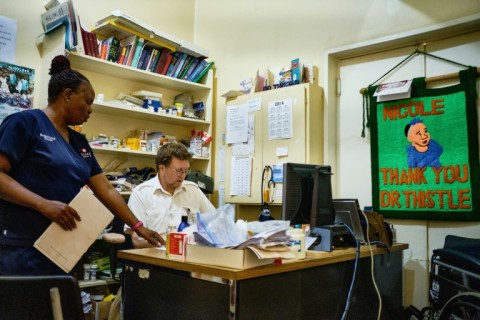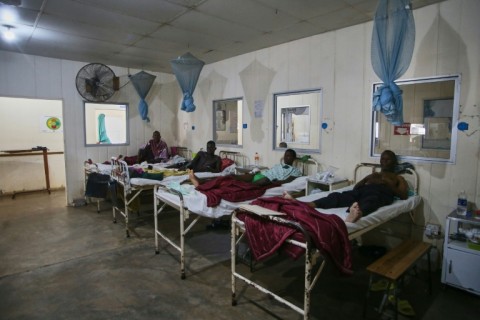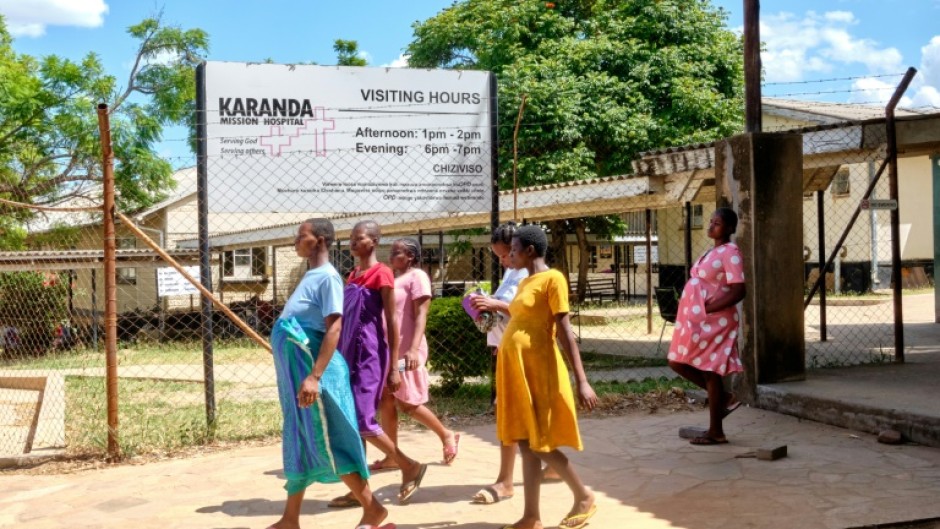HARARE - Outside a hospital in rural Zimbabwe, scores of people wait patiently under trees or inside small tents for news of their loved ones.
Vendors sell snacks, fruits and drinks to drivers queuing at the gates of what has become an unlikely sought-after healthcare destination in the impoverished southern African country.
Zimbabwe's public health system has all but collapsed under years of mismanagement, amid shortages of funds, staff, medicine and equipment.
When in need, those who can afford it, including government ministers, fly overseas to seek treatment.
Some check into private, but relatively expensive clinics in Harare.
Many others make the trip to Mount Darwin, a small village in the parched countryside about 200 kilometres north of the capital and home to the Karanda Mission Hospital.

"I lost all hope of having my aunt treated in Harare, after we were asked to bring water for her to drink and bathe as well as to flush the toilet," says a SUV-driving man, who gave his name as Gunira.
After a three-hour drive, nurses assist the aunt to move from the vehicle to a stretcher and take her inside the building.
- 'Intangibles' -
Funded by the Evangelical church of Zimbabwe and run by three North American doctors, the hospital originally set up to cater to rural folks has built a reputation as one of the best in the country.
The 150-bed clinic treats up to 100,000 people a year and is almost always full, says medical director, Paul Thistle, a Canadian physician who married a Zimbabwean woman.
Charging affordable rates -- a consultation costs around $15 compared to the average $50 asked by private hospitals in Harare -- it draws patients from well beyond its catchment area. Some come from as far as neighbouring Zambia.
We "never turn any patient away", says Thistle.
"Karanda has stood out not because we have the most modern medication, the highest technology in diagnostic and equipment but because we have the intangibles," he told AFP.

That means a caring staff, something that elsewhere is also short in supply, say some patients.
Zimbabwean doctors and nurses have moved abroad en masse in recent years, due to poor working conditions and pay amid runaway inflation.
To stem the outflow authorities have made it more difficult to obtain the necessary paperwork to prove their qualifications -- further frustrating medical staff.
Strikes are common.
"The sector has suffered from years of gross under-funding and investments," said Itai Rusike, who heads the Community Working Group on Health, an umbrella advocacy group.
"The depleted health personnel are also highly demotivated owing to dwindling real incomes, poor working conditions and under-equipped health institutions."
The health ministry did not reply to a request for comment.
- No water, no drugs -
Ahead of elections in August last year, President Emmerson Mnangagwa opened a new "state-of-the-art" clinic in a battleground district of Zimbabwe's second-largest city, Bulawayo.
But critics say that for years, flashy ribbon-cutting exercises have not been followed by systemic reforms to salvage the health sector.

Many hospitals lack equipment for magnetic resonance, radiography, cancer treatment and other procedures.
Collapsing infrastructure sees them often go without electricity and water.
Even basic medications sometimes run low.
Tuberculosis patient Regis Matinenga, 50, travelled 343 kilometres to be treated in Karanda.
Having been sick for more than one year, none of the hospitals he tried "offered him better service", he said, as he shivered and coughed on his hospital bed.
Given its remoteness, relatives of the ill often camp outside, sometimes for days.
Entrepreneurial locals have carved out small rooms at the back of their shops and rent them out for up to $15 a night.
The hospital, which prides itself as having recorded no maternal deaths last year against a high national mortality ratio of 363 per 100,000 live births, is also looking to expand business.
It was the management's "desire to have a hostel for relatives so that they can also get decent accommodation," said Thistle.
- by Mary Taruvinga

